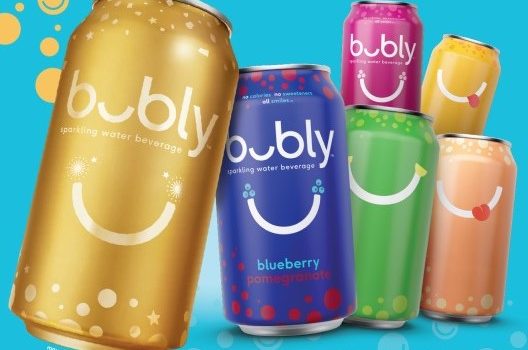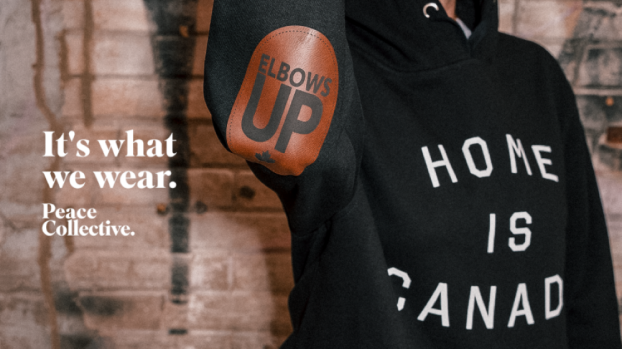
Every day this week, we are rolling out the profiles of our 2022 Marketers of the Year. Read the other stories as they are published here.
This story was originally published in the Winter 2023 issue of strategy.
By Will Novosedlik
It’s not surprising that Julie Gélinas should be chosen as one of strategy’s marketers of the year, having elevated the marketing efforts of brands like Québec-based Metro, Gaz Métropolitain, the Caisse de depot (Ivanhoé Cambridge division) and Les Éleveurs de porcs du Québec. Since joining Les Producteurs de lait du Québec in 2014, her team has won over 200 local, national and international creative awards. In 2017, Infopresse named her Marketing Person of the Year for her leadership and innovation.
When asked about these accolades, Gélinas replies, “When I came into this role there was lot of milk bashing. Milk is not the sacred cow it used to be. There is a lot of competition from plant-based alternatives. My way of becoming more innovative was to discuss with my board that we had to be more humble, and to accept that reality. Instead of confronting it, we needed to embrace it.”
She explains: “We don’t want to impose the product on people. We want them to choose it for good reasons. My first campaign featured cows asking: ‘Is milk still good for you?’ I even put a segment in the ad where there’s a non-milk consumer who says, ‘I don’t want milk. I don’t like milk. I put almond milk in my coffee, and I feel better about it.’”
The way she gets at the truth is by constantly speaking with consumers. But that doesn’t mean she pre-tests her advertising (in fact, she refuses to). She takes a more ethnographic approach, gleaning insights from dialogue with consumers on social channels and using that to inform creative before ideas are developed.
Gélinas wants to honour consumer input by having the humility to make changes to the team’s approach, and, given the growing public concern for animal welfare and climate issues, she wants the brand to be humble enough to embody that it may not be perfect, but it is trying.
At the end of the day, Gélinas wants customers to feel listened to. “My biggest reward was to hear from vegans that while they don’t drink milk for animal welfare and environmental reasons, they love how we respect their position and the way we communicate our message.”
She also vigorously resists stereotypes. Take the “farmer as hero” trope, depicting dedication to early mornings and hard work. Gélinas’ perspective takes a different approach. “The nurse who’s a single mom, who works at the hospital all week and at Walmart on weekends, she doesn’t care about how hard you work. What do you have to offer to this person? How do you communicate? Not by preaching to her,” she says.

Les Producteurs were so successful marketing chocolate milk, it raised chocolate milk sales by 17% across the country.
This approach has led to some audacious initiatives. Like the one where milk producers showed up at a farmers’ market and handed out free bags of compost made from cow manure. It attracted a lot more attention than if they had been handing out free glasses of milk. It also sent a strong eco message.
Another is Blanc Bec, where Les Producteurs de lait du Québec built a wine and cocktail bar in the Institut de tourisme et d’hôtellerie du Québec (ITHQ), an addition to its existing teaching restaurants and teaching hotel. The concept supports the Institut’s mandate to promote Québec gastronomic culture, while targeting young foodies who crave discovery and want to do it in a happening part of town. Referring to Québec’s many fine cheeses on offer at Blanc Bec, Gélinas says, “We eat milk a lot more than we drink it.”
Then there’s the campaign that repositioned chocolate milk from a post-workout beverage aimed at athletes to an occasional indulgence for anyone, even if all they’re doing is watching sports from their couch. The campaign ran during the Olympics to capture a broad swath of television viewers. Even though it was aimed at Québécois, it was so effective that it raised chocolate milk sales by 17% across the country.
Les Producteurs also engages in some effective sponsorships. One is for Tout le monde en parle, Québec’s beloved Sunday evening television talk show that regularly draws 2.5 million viewers. The host and guests discuss the issues of the day while sipping wine and sampling Québec cheeses. Another is Arrive en campagne, a reality TV show where urban families spend time on a dairy farm learning what it’s like being a producer.
One thing that makes Gélinas such a successful marketer is that she trusts her team. For instance, she never goes on shoots. “I have very good people who I trust to do the job. I get involved in pre-production, making decisions about various aspects of the shoot, but on the day of the shoot, it’s in their hands. They feel greater ownership, and they take it seriously because they know I trust them to deliver the quality I expect,” she says.
Whether it’s the trust she has in her team or in the insights of the consumers she’s speaking to, Gélinas has created a collaborative environment that seems to perfectly serve her brand. So, while there may be challenges on the horizon – like what it’s going to take to keep the next generation of dairy farmers on the farm, ever-evolving environmental issues and even more competition in a crowded category – she’ll be ready, with the characteristic honestly and humility that has served her so well thus far in her career.























